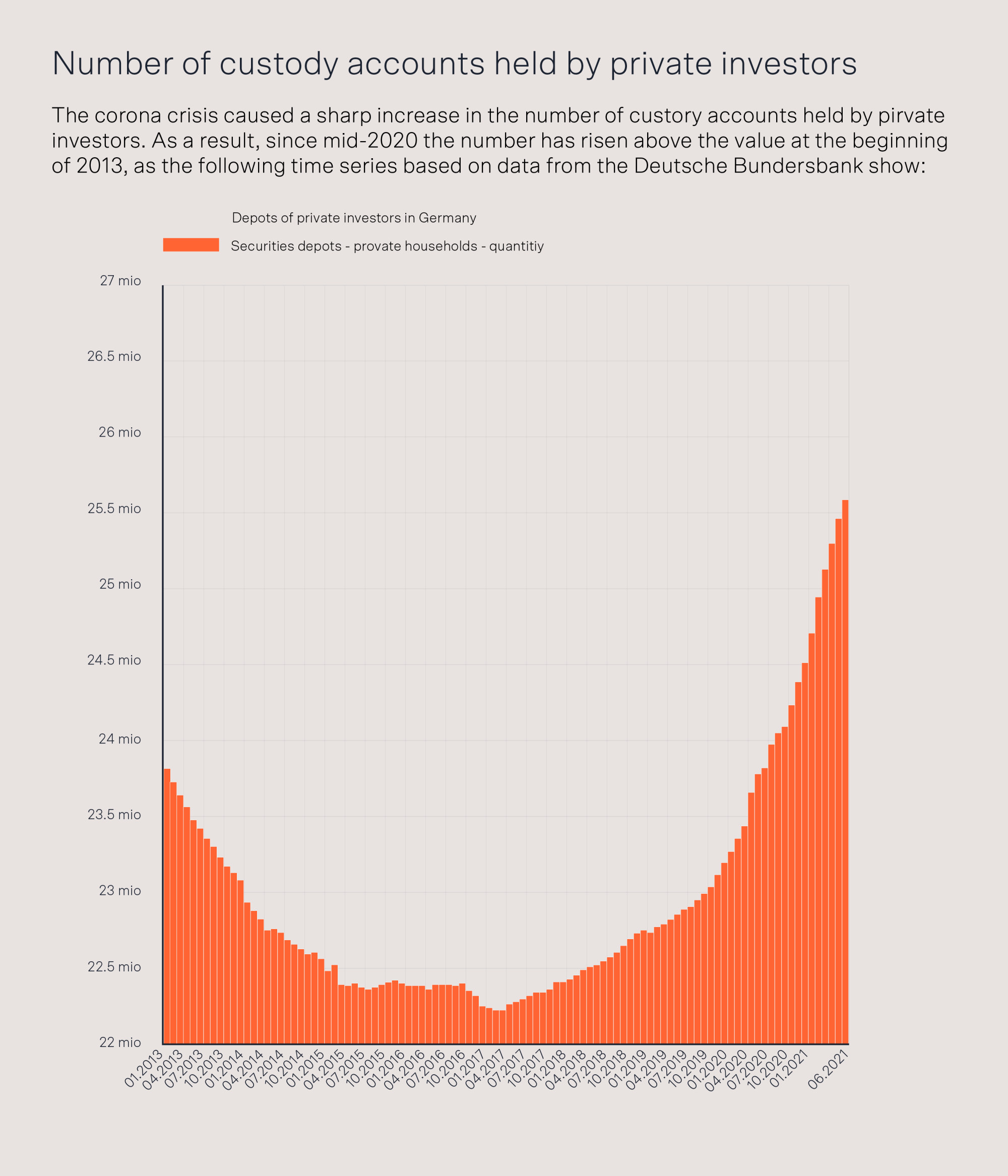Securities Brokerage-as-a-Service: the missing link in embedded finance
4 minute read


In January 2021, a group of amateur investors took on Wall Street and became millionaires overnight.
It was a watershed moment.
While people have been speculating since the late 1400s, when the first modern stock markets appeared, trading has historically been viewed as something that's mainly reserved for the wealthy and those with specialised knowledge.
But these amateur investors not only demonstrated that you can succeed on the stock market even if you have limited experience. They did so by betting on a company — GameStop — which according to the experts didn't have a future.
Today, everyone can be a trader
GameStop may be the most headline-grabbing example, but it isn't the first time in recent years that retail investors took risks which paid off.
Just under a year earlier, in February 2020, one amateur investor turned $1,500 into $130,000 in under a month — a 2500% return — trading Tesla stock options. And in 2018, a Canadian chef earned $140,000 in a single day investing in cannabis stocks and became a millionaire within 18 months.
These examples all illustrate just how mainstream trading has become. In 2020 alone, over 10 million retail investors tried their luck on the stock markets for the first time.
So what created this boom?
To put it simply, a confluence of factors came together and created a perfect storm.
Firstly, investing has never been more accessible.
Gone are the days when buying stocks entailed filling out lengthy application forms, committing three or four-figure minimum investments, and paying steep fees. Nowadays, all you need is a smartphone, an app like RobinHood, e-Toro, or Trade Republic, and a spare €10.
Products like exchange traded funds and stocks and shares savings plans have similarly lowered the barriers to entry. ETFs in particular are ideal for beginners, because they're highly liquid, diversified, and cost-effective by design.
More to the point, quality educational resources are a Google search away. Today's trading newbie has access to terabytes of videos, courses, podcast recordings, and forums where they can learn the tricks of the trade.
Secondly, unprecedented market volatility during the Covid-19 pandemic created opportunities for big gains, which made trading more appealing.
In Germany, these events also coincided with growing awareness of the pensions funding gap. With a pensions crisis looming and interest rates hitting rock bottom, more and more people turned to the stock market to boost their wealth ahead of retirement.

Thirdly, lockdown boredom encouraged more people to try trading.
According to research from Paderborn University, every time Covid-19 cases doubled in 2020, the number of retail investors on the stock market increased by around 13.9%.
Putting trading in perspective: the good, the bad, and the ugly
The trading boom has created opportunities all-round.
By making trading digital-first, lowering fees significantly, and removing steep minimum investment requirements, trading platforms have made investing approachable even for newcomers.
By the same token, greater accessibility and the ensuing increase in demand for investment services has widened the addressable market for sell-side firms, particularly for neo-banks and fintechs. Suddenly, anyone with an internet connection is a potential client.
The flipside is that, because customers pay low fees and can trade relatively low volumes, scalability is key to growing revenue. But with the space becoming increasingly saturated — and with most players having very similar features and capabilities — it's getting harder to differentiate yourself and gain critical mass.
Crucially, because many trading platforms are relatively new, earning people's trust is a challenge.
While most people may be happy to dabble on the stock exchange using a new and, so, untested platform when the amounts involved are small, they prefer to deal with a business that has stood the test of time if they're investing a large sum.
More to the point, even digital natives seek out professional advice before making important financial decisions. But advisory services are conspicuously absent from trading platforms, because they open a complex and costly regulatory Pandora's box.
Introducing Securities Brokerage-as-a-Service: the low effort way for financial services firms to scale their trading capabilities
Given the current state of the market, fintechs that add securities brokerage services to their offerings stand to gain a significant advantage.
Vertical offerings in particular could strengthen their product portfolio — and distinguish themselves from the rest of the market even further — by connecting to a brokerage offering tailored to their niche.
Sustainable fintech treecard, for instance, could become all the more attractive by enabling customers to invest in green stocks. Similarly, neobrokers geared towards a female and diverse audience, such as fina, will soon enable customers to invest in female-founded and female-led businesses.
Brokerage services are also an opportunity to add the all-important human touch in an ever more impersonal space. By extending their offering to include advisory services, firms can encourage retail investors to start entrusting them with larger sums.
At Solarisbank, we're building a Securities Brokerage-as-a-Service platform that will allow companies to offer execution-only and non-advisory trading, simply by plugging into an API and without having to worry about the regulatory challenges this entails.
Partnering with us means you don't have to go through lengthy and expensive licensing and regulatory processes. We'll take care of all aspects of compliance — from meeting ongoing supervisory requirements to customer onboarding and KYC.
And because we offer the full spectrum of banking products, we're a one-stop-shop. Alongside trading, you can also offer customers other banking products such as interest-bearing accounts, payment cards, lending services and crypto brokerage. All you need to do is plug into our APIs and we'll do the rest.
Down the line, we also plan to offer specialized investment products, including stocks and shares savings plans.
It's time to address the trust gap in trading
Between now and 2028, the market for trading services is expected to grow at a rate of 5.1% a year, reaching $12.61 billion in value. But very few players will achieve profitability unless they improve on the current business model.
Technology may have created a new market for investment services. But, for trading platforms to truly capitalize on the opportunity, it's no longer enough to be digital-first and low cost. Building trust and a personalized experience are key.
In the words of consumer behavior expert Rory Sutherland, "The real value of technology should be in automating what can be automated and making more personal what needs to be personal."
By partnering with Solarisbank, you can keep the barriers to entry low for your customers while creating valuable products that help you build fruitful long-term relationships.